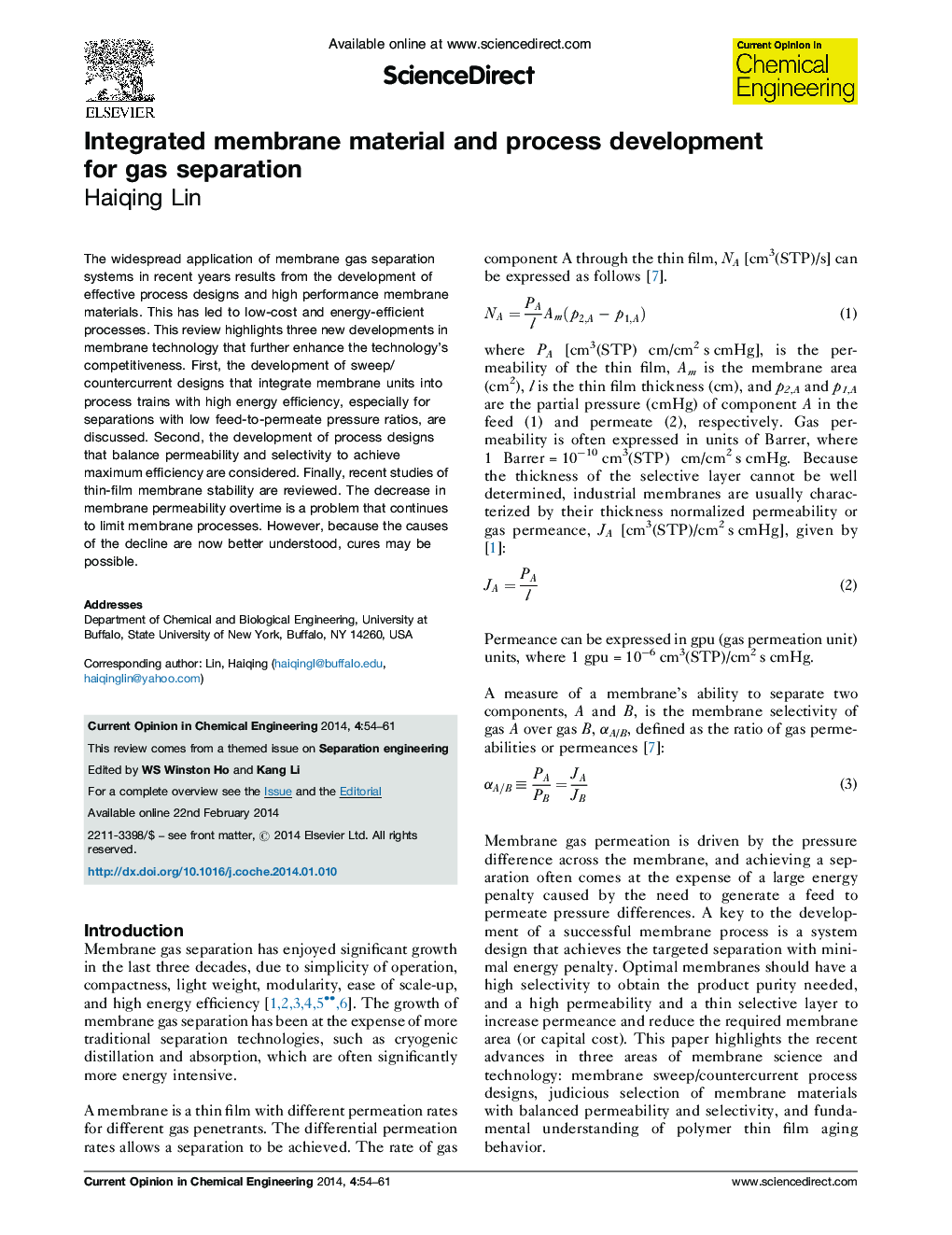| Article ID | Journal | Published Year | Pages | File Type |
|---|---|---|---|---|
| 174491 | Current Opinion in Chemical Engineering | 2014 | 8 Pages |
•Membrane sweep/countercurrent designs achieve high energy efficiency.•Gas separations need judicious selection of a balanced permeability and selectivity.•Thin film glassy polymers often age, except perfluoropolymers.
The widespread application of membrane gas separation systems in recent years results from the development of effective process designs and high performance membrane materials. This has led to low-cost and energy-efficient processes. This review highlights three new developments in membrane technology that further enhance the technology's competitiveness. First, the development of sweep/countercurrent designs that integrate membrane units into process trains with high energy efficiency, especially for separations with low feed-to-permeate pressure ratios, are discussed. Second, the development of process designs that balance permeability and selectivity to achieve maximum efficiency are considered. Finally, recent studies of thin-film membrane stability are reviewed. The decrease in membrane permeability overtime is a problem that continues to limit membrane processes. However, because the causes of the decline are now better understood, cures may be possible.
